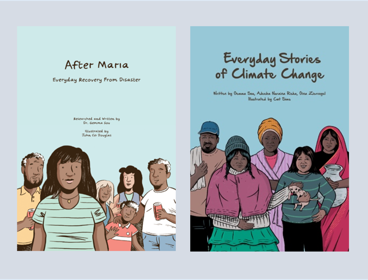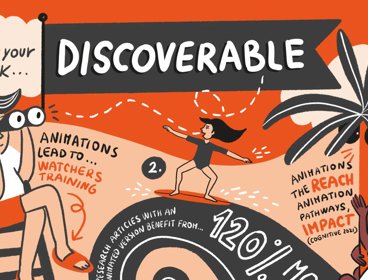By Jo Sharp, St Andrews University
Writing a 'popular' book offers great potential to reach wider audiences. In 2020 I co-edited a collection, Imagine a Country, with crime writer Val McDermid, as a response to the increasingly binary and divisive nature of political debate in Scotland. Our intention in putting the book together was to stimulate discussion and understanding. The book consciously avoided a singular voice; reading through the contributions should be like sitting on the bus or in the pub, eavesdropping on conversations, rants, daydreams and hopes, rather than reading a neat or coherent agenda.
Writing the book was different from my usual academic practice and so too were the ways the book was produced and consumed. First off, the turnaround from manuscript submission to publication was very speedy, and the nature of trade publishing meant that there simply wasn’t the deadline wriggle-room that I had come to expect from academic publishing – the requirements of the publicity department, as well as the printers, meant that deadlines had to be adhered to.
The book came out in the first week of lockdown due to the COVID-19 pandemic and so our big launch event had to be cancelled. We had a number of events scheduled at book shops and book festivals to discuss the issues that our contributors had raised in the book. Many of these went online, which was a wonderful way to reach a wider audience, but it was much more challenging to manage the conversation between writers and audience.
One of the encouraging things about lockdown has been the rise in the number of independent local bookshops. These have worked hard to attract customers away from the internet giants by holding events and getting authors in front of audiences. Some of the independent bookshops in Edinburgh have speaker events. Although lockdown meant that authors could be brought in from across the world for virtual events, in-person events are what most readers are keen to attend. This is our opportunity! Local authors have a competitive advantage (no travel and accommodation costs). Many of these events involve a discounted book purchase. And so, the book sellers are looking for events that will attract an audience and sales – and having a local author is one such draw.
There are increasing numbers of book and literature festivals emerging too. Book festivals are places where ideas are discussed amongst interested but quite general publics. There are opportunities for us there to have our work discussed, or to enter debate as chairs or session convenors. But timing and pitch are important: we were lucky with Imagine a Country. Despite the impact of the pandemic, as the Edinburgh International Book Festival (EIBF) theme that year was “keep the conversation going”, and people were keen to think about a more optimistic future and so the theme of our book was a perfect fit (so much so that to our surprise the only book that outsold us at the EIBF shop during the festival was Bernadine Evaristo’s Booker-winning Girl, Woman, Other).
Many cities and towns have book festivals, and my experience is that the organisers are always looking for new ideas and enthusiastic contributors. Some libraries are also organising reading groups and author-events. As well as presenting our own work, there are opportunities as session chairs. I have suggested speakers to get geography discussed in these fora with the additional hope that I will be selected to chair, although my first event was a topic that was offered to me - a session on paleoecology. This was far from my expertise, but I suspect that was an advantage as it meant I acted as an informed but general reader (and so it stopped me from going down academic rabbit holes). It was quite an intimidating experience, but one that I have learned a lot from. Chairing at a book festival is not like chairing at an academic event: my role was not to interrogate every aspect of the argument, but instead to draw out the best from my authors.
Do
-
Speak to independent bookshops about an event linked to your upcoming book (but, unfortunately, it will probably not be possible if this is a £120 academic hardback – the shop will want to ensure it is going to be able to sell multiple copies).
-
Get in touch with festival organisers early – programmes may be being put together nearly a year ahead of the events.
-
Make it clear how your book will engage an audience – is there a current debate it can contribute to?
-
As a chair, do your homework – the best chairs appear to do very little, but this is because of being on top of their material and always knowing what is the right question to ask.
How to cite
Sharp, J. (2023) Book festivals. Communicating research beyond the academy. Royal Geographical Society (with IBG) Guide. Available at: https://doi.org/10.55203/LHJN4155
About this guide
There’s a long tradition of geographers communicating research ‘beyond the academy’ - to policy, to publics, to young people, to school teachers - whether to recruit students, for career development, critical praxis and activism, or requirements of funders to document ‘impact’. Ten years ago we published the Communicating Geographical Research Beyond the Academy guide. It sought to bring together and share collective experience and learning, from within and beyond the academy. Today, there’s ever more opportunities and modes and media with which to do this. While many of the points made – about audience, about access, about brevity and the use of plain English – still stand, this collection covers these already familiar issues as well as bringing new perspectives to encourage readers to reflect on motives, means and methods and to illuminate examples of good practice.




